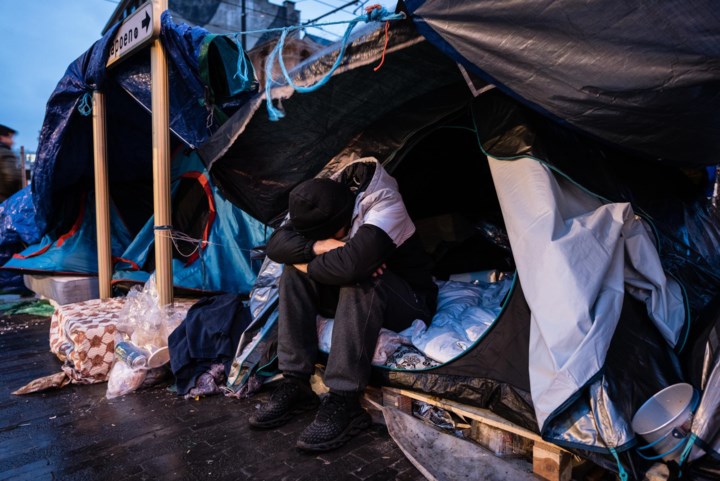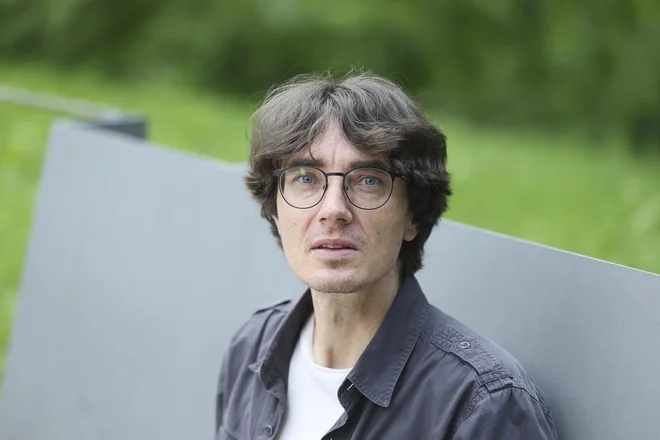Amnesty International: « Refusing reception entails suffering »

The human rights organization spoke between 2021 and 2025 with countless asylum seekers who stayed on the street. They all outline a story full of suffering and broken dreams.
Similarly Thaer, a young man from Palestine. « I wanted to come to Belgium, continue studying as a nurse and start working, » he says. « Instead, I ended up in the Brussels metro tunnels, where I slept to protect myself against the rain. »
The young Afghan Sayed, who stayed in the notorious squat from 2022 to 2023 in the Paleizenstraat, also remembers all too well the miserable living conditions with which he was confronted in the squat. « Slowly the squat turned into a cemetery, » he says. « The government did not come, only normal people-citizen volunteers-came to eat and bring warm clothes. People felt our pain, but the government did not. »
The Syrian Hassan also remembers a meeting with a fellow asylum seeker who had to survive on the street with a chronic heart condition. « Even if you have a heart attack or cancer, the government doesn’t care about you. »
« Street is greatest psychiatry »
At the Humanitarian Hub on the Brussels canal and on a stone’s throw from the Herman Teirlinck building of the Flemish government, 357 asylum seekers daily approach medical assistance, legal assistance, food or a clothing package. The medical complaints that the asylum seekers have there are largely the result of homelessness and staying on the street as they go through the asylum procedure.
Only then will other causes, such as physical violence, torture and detention. According to ‘Infirmiers de Rue’, a medical organization active in Brussels, the street is now « the largest psychiatric hospital in Brussels ».
Judgments and penalty payments
The Amnesty International report takes a look at the human suffering behind decisions of the federal government, which, according to the NGO, fails to resolve the reception crisis since 2021. In that year, various midfield organizations sounded to the alarm. The then De Croo government was urged to provide extra reception places. Since then, the Belgian government has been ordered more than 12,000 times by national and international courts to provide extra care. Because the judgments are not responded to, the penalty payments also rise to just under 16 million euros.
Belgium has always failed to respect the judgments, says Amnesty International. « The political will is missing », despite penalty payments and the binding nature of the judgments. « The persistent contempt for Belgium for human rights obligations and both domestic and international judgments is very disturbing, » says Tess Heirwegh, policy officer at Amnesty International Flanders.
Not only NGOs and midfield organizations manen the federal government to take action. Since 2021, four special rapporteurs from the United Nations and the human rights committee of the Council of Europe have also expressed their concerns.
« Government will aggravate crisis »
With the appointment of the Federal Government De Wever I, the attitude of the Belgian government with regard to asylum seekers is also paving. Brandfish Minister for Asylum and Migration Anneleen van Bossuyt (N-VA) indicates that he will start « the strictest migration policy ever ».
According to policy officer at Vluchtelingenwerk Vlaanderen, which recognizes the findings from the report from in the field, the plans of the current federal arizonar government will only make the crisis worse « . « We do not believe that Belgium cannot remedy that crisis, it is only a matter of political will, » says policy officer Thomas Willekens of Vluchtelingenwerk Vlaanderen.
He does underline that Fedasil, according to him, does a good job and does its best, but that the government is sticking in the wheels. « They place Fedasil in a continuous Cirism mode. » Partly because of this, « Fedasil no longer respects the judgments of the court since May 2022 ».







